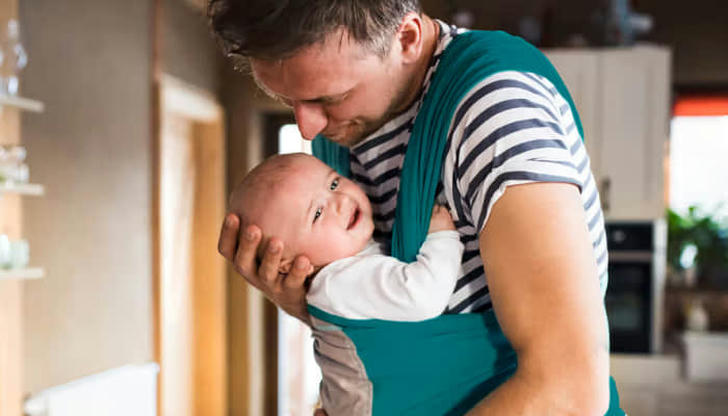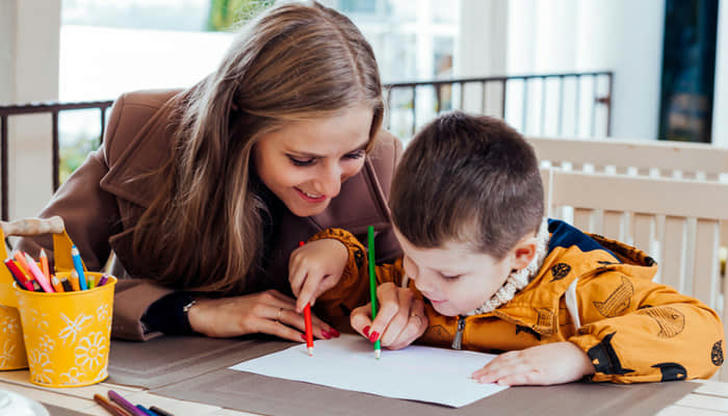9 Proven Strategies to Raise Independent Kids Without Losing Your Bond
Raising an independent child isn't just about challenging traditional parenting methods; it's about fostering a more harmonious and positive relationship between you and your child. Many parents don't realize that nurturing independence requires stepping away from the usual advice.

Instead of demanding obedience, punishing bad behavior, or pushing them out of their comfort zones, consider creating a supportive environment. Encouragement and understanding build confidence and self-reliance in children, making them secure, bold, and capable thinkers.
Surprisingly, when children feel heard and free to express themselves, they develop independence more naturally. This approach not only improves behavior but also strengthens the parent-child bond, leading to a more peaceful and connected relationship.
Ready to transform your parenting? Here are eight powerful strategies to raise independent, confident kids:
Form a Strong Attachment
To foster an independent mindset in children, many parents think they should make their kids handle challenges on their own. This seems logical at first—forcing independence should lead to self-reliance, right? Surprisingly, research shows the opposite.

Children need security to build confidence, and no one provides better security than a parent or caregiver. Pushing kids into stressful situations without acknowledging their fears can make them feel insecure and less independent.
However, a secure, loving, and supportive relationship with parents has the opposite effect. When children know their parents are there to support and nurture them, it builds their confidence and, ultimately, their independence.
Allow Kids To Have Feelings And Then Emotion-Coach Them
Allowing children to express strong emotions like anger, fear, or disappointment is often seen by parents as a path to undisciplined behavior. To avoid this, they might punish the child or demand they stop expressing these feelings. However, true emotional regulation—and the confidence and independence it brings—cannot be learned through punishment or suppression.

All emotions are natural, whether it's anger over a sibling taking a toy or disappointment over not getting a cookie. What's important is guiding children on how to handle these emotions appropriately. It’s unacceptable to hit a sibling or throw a tantrum, and this is where respectful coaching comes in.
By taking the time to emotion-coach, parents help children learn to regulate their feelings, fostering independence and equipping them with the tools for healthy, secure relationships now and in the future.
Let Kids Speak Out
Conventional parenting often advises against letting kids speak out of turn or challenge their parents' wishes. However, just like with emotions, children need the chance to express their opinions and learn to think independently, and home is the perfect place for this practice.

While unchecked rude or disrespectful talk isn’t beneficial, parents can guide children on expressing their thoughts respectfully. For instance, if a child yells to make a point, a parent might calmly say, “I want to hear what you have to say, but I don’t listen to yelling. Let’s talk when you can express yourself calmly.”
Suppressing or punishing kids for disagreeing sends the message that their opinions don't matter, which hinders the development of a confident, independent mindset. Encouraging respectful expression builds their self-esteem and critical thinking skills.
Provide Consistent Boundaries And Positive Discipline
To raise well-adjusted kids, it's not enough to simply teach obedience. Children need to develop self-reliant thinking, which is best achieved through positive discipline that is both kind and firm, rather than dictatorial. Research shows that when parents validate their child's feelings, show empathy, and maintain clear boundaries, kids feel more secure and confident, absorbing lessons more effectively.
Create a Collaborative Relationship Based On Problem-Solving

As children mature, parents should aim to form a collaborative relationship focused on problem-solving. This involves listening to the child, understanding their perspective, and encouraging them to develop solutions. According to Ross Greene, author of Raising Human Beings, this approach not only teaches children effectively but also fosters a more peaceful and healthy parent-child relationship. It promotes a problem-solving mindset, crucial for independent thinking in adulthood.
Offer Kids Choices
Giving children choices is a great way to manage defiance and foster independence. For example, saying, “I know you don’t want to go to the store, but we need to buy groceries. Would you like to bring your stuffed giraffe or elephant?” acknowledges their feelings and gives them a sense of control.

Offering choices communicates to kids that their opinions matter and helps them grow into confident, self-reliant individuals. Even school-age children and adolescents benefit from being asked their preferences, turning everyday situations into opportunities for decision-making and independence development.
Encourage Responsibility
Responsibility and independence go hand in hand. The more responsible our kids are, the less they rely on us. Start encouraging a helping mindset early, even at age two, by involving toddlers in household chores and small tasks. Toddlers are eager helpers, and fostering this mindset early makes it natural as they grow.
Involve kids in chores to build responsibility. Children of all ages can help with laundry, dishes, or making their own lunch. These tasks cultivate a sense of responsibility that contributes to their independence.
Let Them Learn From Natural Consequences

Parents often think they need to impose consequences for children to learn lessons. However, kids, especially adolescents, learn more from natural consequences. Forgetting homework, not packing an umbrella on a rainy day, or leaving a scooter outside teaches valuable lessons without parental intervention. Keep in mind that young children under six may not connect actions to consequences as easily.
Letting Go While Still Supporting
As children mature, they'll have more opportunities to demonstrate independence in their actions, choices, and words. Parents need to balance support with gradually letting go. From an early age, be their rock and foundation—a source of acceptance, guidance, and unconditional love. This assurance gives children the confidence to spread their wings and become independent, self-sufficient adults.

